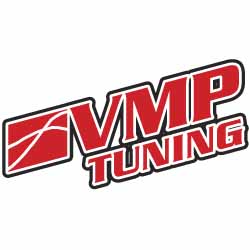FrancoGT
Junior Member
Solved a “clunk” issue with my 2007 GT vert. Maybe others can benefit.
I’m the original owner. Not a daily driver (only 91k miles). Always had a clunk sound when downshifting/ braking while making a turn. Ford dealer was useless in 2007 and I just put up with it, knowing I would upgrade the suspension over time.
All my drivetrain / suspension upgrades are complete (see below). Still had the same pesky clunk described above. I also noticed the sloppy rotors which others have mentioned in prior posts, so I thought I’d try to address the clunk by placing a nonmetal shim between the studs and the rotors. It seems to have worked. No more clunk (at least after several hard test drives)
I used 1/2 inch PTFE pipe from Ace Hardware. The pipe inside diameter was slightly less than 1/2 inch, so I used a 1/2 inch drill bit to slightly open the inside diameter. It fit snug on the stud. I then used my bench grinder to reduce the outside diameter of the PTFE pipe to fit snug in the rotors. I did not have to remove much. I then sliced off 1/4 inch shims of that pipe and gently tapped them in using a dull screwdriver and punch. I shaved off any excess with a knife so the wheel fit flush. The rotors are tight - no more slop. The clunk is gone, at least for now. I did this for front and rear rotors.
Upgrades over last four years: B326 with Paxton 2200, McLeod clutch and Magnum XL 6 speed, DSS shaft, 4:10 gears, Moser axles. Subframe braces. BMR rear upper and lower control arms and panhard bar, Steeda coil overs, adjustable end links, front lower control arms, FRPP sway bars, torque limiter, upgraded brakes and fore fuel system. Most was professionally installed, I did some of the weekend hobby mechanic stuff. I thought the suspension upgrades would eventually solve the clunk. Nope. I got the speed and torque -and all the fun that goes with - but still the clunk. So after spending the equivalent of a college education to get what I wanted, I did not want a “clunk”.
I’m the original owner. Not a daily driver (only 91k miles). Always had a clunk sound when downshifting/ braking while making a turn. Ford dealer was useless in 2007 and I just put up with it, knowing I would upgrade the suspension over time.
All my drivetrain / suspension upgrades are complete (see below). Still had the same pesky clunk described above. I also noticed the sloppy rotors which others have mentioned in prior posts, so I thought I’d try to address the clunk by placing a nonmetal shim between the studs and the rotors. It seems to have worked. No more clunk (at least after several hard test drives)
I used 1/2 inch PTFE pipe from Ace Hardware. The pipe inside diameter was slightly less than 1/2 inch, so I used a 1/2 inch drill bit to slightly open the inside diameter. It fit snug on the stud. I then used my bench grinder to reduce the outside diameter of the PTFE pipe to fit snug in the rotors. I did not have to remove much. I then sliced off 1/4 inch shims of that pipe and gently tapped them in using a dull screwdriver and punch. I shaved off any excess with a knife so the wheel fit flush. The rotors are tight - no more slop. The clunk is gone, at least for now. I did this for front and rear rotors.
Upgrades over last four years: B326 with Paxton 2200, McLeod clutch and Magnum XL 6 speed, DSS shaft, 4:10 gears, Moser axles. Subframe braces. BMR rear upper and lower control arms and panhard bar, Steeda coil overs, adjustable end links, front lower control arms, FRPP sway bars, torque limiter, upgraded brakes and fore fuel system. Most was professionally installed, I did some of the weekend hobby mechanic stuff. I thought the suspension upgrades would eventually solve the clunk. Nope. I got the speed and torque -and all the fun that goes with - but still the clunk. So after spending the equivalent of a college education to get what I wanted, I did not want a “clunk”.


